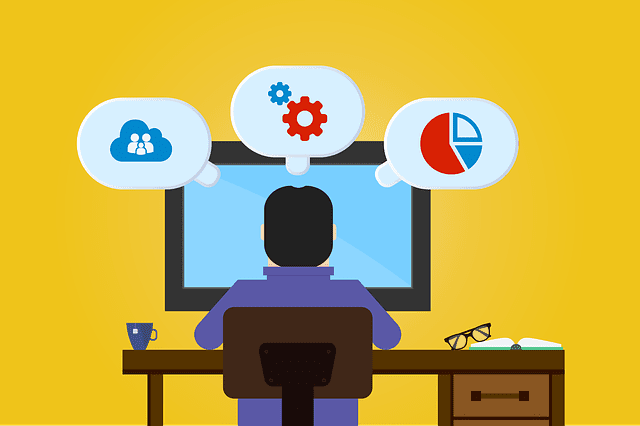
16 Well-Paying Positions in Prepackaged Computer Software
There are numerous high-paying positions and numerous career options in the prepackaged computer software sector. Additionally, those who enjoy utilizing computers and have strong problem-solving abilities might consider careers in this field. Deciding if this is the correct career option for you might be made easier by learning more about the sector.
This article examines sixteen well-paying positions in the computer prepackaged software industry.
What is bundled software for computers?
Software that is created, packaged, and offered for sale to customers or companies in an executable format is known as computer prepackaged software. It is commercial software that offers particular features and functionalities, like accounting, graphic design, word processing, spreadsheets, and video editing. This is in contrast to custom software, which is created to specifically address the requirements of a given user or company.
Prepackaged software is meant to be used by a larger range of users and is frequently made to be simple to install and operate. Along with training materials, updates, and patches to address bugs and provide new features, it could also include customer support.
16 positions in bundled computer software
Here are sixteen well-paying positions in computer software that come in packages:
1.The solution architect’s main responsibilities:
An expert in the field, a solution architect is in charge of creating comprehensive technological solutions that satisfy user demands and organizational objectives. They assess and evaluate user needs and create software solutions that address them in collaboration with clients, software development teams, and others. They choose software tools and components, supervise the production of system architectures, and guarantee the scalability and maintainability of the software. Additionally, as regular development develops, they can be asked to examine and approve software code.
2.A tester for quality assurance
The main responsibilities of a quality assurance tester are to guarantee the dependability and quality of software programs. In cooperation with software development teams, they could test and validate the usability, performance, security, and functionality of software. Creating test cases, running them, and then locating and recording any software flaws that surface during this process could all be part of the job description. After that, it might be necessary for them to give software development teams input regarding what they discovered.
3.A technical assistance professional
The main responsibilities of a technical support expert are to help clients or end users who are having problems with software, hardware, or other specialized items by offering technical support and assistance. They offer phone, email, or in-person support to users in addition to diagnosing and troubleshooting technological difficulties. Furthermore, they are able to troubleshoot complicated issues with their specialized knowledge and provide clients or end users with training to advance their technical knowledge and skills.
4.An engineer for clouds
The key responsibilities of a cloud engineer include developing, constructing, and maintaining cloud computing services and infrastructure. Furthermore, they collaborate with many cloud-based platforms to provide solutions that support enterprises and organizations in leveraging this technology. They are responsible for developing cloud architecture, setting up virtual machines and networks, monitoring performance, diagnosing problems, and guaranteeing security and compliance. To guarantee that services and apps are seamlessly integrated with cloud infrastructure, they can also collaborate with development teams.
5.A programmer
A software engineer’s main responsibilities include designing, creating, and testing software platforms, systems, and applications. They are able to create software solutions that satisfy users’ expectations by analyzing their requirements. Software engineers have expertise creating safe and functional software using a variety of coding languages. To guarantee smooth software development and deployment, they may have to work in tandem with other teams, including those in charge of quality assurance and product development.
6.Full-time programmer
Main responsibilities: Updating web applications’ front-end and back-end software is the responsibility of a full-stack developer. It is reasonable to anticipate that they will work with and be skilled in a variety of programming languages, including HTML, CSS, JavaScript, Python, Ruby, and SQL. Developing and designing server-side components, integrating third-party services and APIs, testing and debugging apps, and managing code repositories are a few of the tasks they could be assigned. In order to guarantee high-quality software development, this role may also require cooperation with other developers and teams.
7.Engineer for systems
A system engineer’s key responsibilities include designing, implementing, and maintaining intricate computer networks and systems. They collaborate with software and hardware components to guarantee dependability, security, and performance. They are responsible for evaluating user requirements, creating system architectures, installing and setting up hardware and software, keeping an eye on system performance, and creating upgrades and additions for the system. In order to guarantee system effectiveness and functionality, they also work together with other IT teams and stakeholders.
8.Scientists with data
The main tasks of a data scientist are to analyze large, complicated data sets in order to find trends, patterns, and insights that help guide business choices. They make use of Python, R, and SQL, as well as statistical modeling tools. Furthermore, they can employ data cleaning and processing methods, statistical analysis, and modeling, along with data visualization tools that help stakeholders understand data and facilitate the creation of data-driven solutions, by utilizing their training and qualifications in these areas.
9.A network analyst
The major responsibilities of a network analyst are to design, build, and maintain computer networks for companies and organizations. Utilizing their expertise in managing hardware and software components of networks, they guarantee network dependability, security, and efficiency. They are responsible for assessing the needs for the network, creating network architectures, and, if necessary, setting up and installing hardware and software. In order to guarantee network efficiency and operation, they could also work together with other IT teams and stakeholders.
10.A tester of software
Software testers’ main responsibilities include making sure software applications are dependable and of high quality before making them available to end users. They collaborate with software development teams to test many facets of computer programs and apply their knowledge to find and report bugs in the software. Among their responsibilities are writing test reports, carrying out extensive testing, working with developers to address software flaws, and taking part in code reviews. To improve testing accuracy and efficiency, a software tester can make use of automated testing tools and frameworks.
11.The architect of software
Developing and designing the architecture of software systems, platforms, and applications is the principal responsibility of a software architect. Users study and determine user requirements, then work with software development teams, project managers, and stakeholders to create software solutions that provide the functionality users need. As a crucial component of their work, they create system designs, using their skills to choose and apply the right systems to produce the finest software.
12.Engineering manager for development and operations
- Principal tasks:
Software application development, testing, and deployment must go smoothly and efficiently, and this is the responsibility of a development operations (DevOps) engineer. To establish and oversee automated software deployment procedures, maintain code repositories, and guarantee software configuration management, they draw on their experience working with developers, testers, and other IT specialists. Their responsibilities also encompass creating and overseeing application security and performance, debugging problems, and collaborating with interdisciplinary teams to guarantee the smooth delivery and development of software.
13A professional in IT security
Among their main responsibilities is the security and integrity of computer systems, networks, and data inside an organization. They employ their expertise in IT and security tools to recognize, evaluate, and create security procedures that will put security countermeasures in place for risks and vulnerabilities. Managing security hardware and software, keeping an eye on security logs, enforcing security policies and procedures, creating incident response plans, and educating end users on security are some of their other responsibilities.
14.A programmer for computers
Writing, testing, and maintaining computer software programs are the key responsibilities of a computer programmer. They can create and implement software solutions that satisfy user requirements using a variety of programming languages, including Python, C++, Java, and others. Writing and testing code, troubleshooting software bugs, and recording software procedures and code are the main responsibilities of this profession. Additionally, they can use the tactics and approaches they have learned to solve obstacles that come with programming by drawing on their expertise.
15.Developer for mobile apps
The main responsibilities of a mobile developer are to design and develop mobile applications for different platforms using their knowledge and expertise. They might utilize Swift, Kotlin, or Java as programming languages, and they might work with mobile development frameworks. In addition to creating and testing code, they also design and test user interfaces, troubleshoot software bugs, integrate mobile apps with backend systems, and guarantee the dependability, security, and performance of mobile applications.
16.Developer of websites
A web developer’s key responsibilities include designing, creating, and maintaining websites and web apps. They might use web technologies like HTML, CSS, and JavaScript in addition to working with web development frameworks like React, Angular, or Vue. Their responsibilities may involve taking different actions to guarantee the web application they are constructing operates effectively, securely, and dependably. They might work in a team environment and regularly give the customers they serve updates and criticism.
Conclusion
We have provided as much information as we could regarding careers and jobs in computer software and prepackaged software. Now that you’re persuaded, you realize how important it is to forge a successful career in computer software and the packaged software sector. Being proficient in your field (web development, software engineering, etc.) can enable you to hold better positions and command more pay in any company. Jobs in this sector pay well and offer a highly pleasant work environment for employees.



